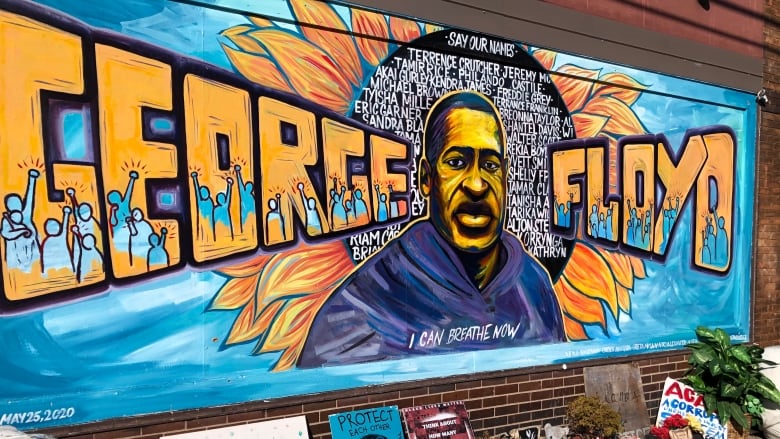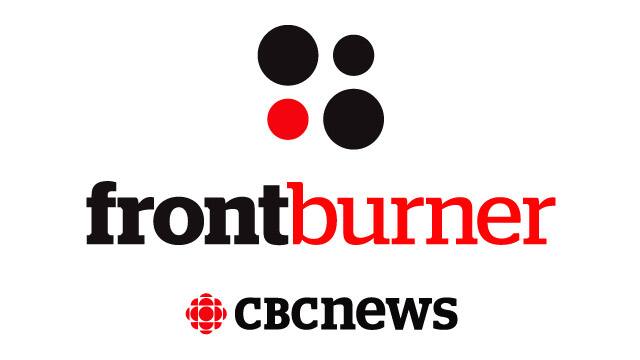How Much Money Did George Floyd Family Get
The city of Minneapolis on Friday agreed to pay $27 million United states of america to settle a ceremonious lawsuit from George Floyd's family over the Black man's death in police custody, even as jury selection connected in a former officer's murder trial.

The city of Minneapolis on Fri hold to pay $27 million U.s.a. to settle a ceremonious lawsuit from George Floyd's family over the Black homo'due south death in police custody, even as jury selection continued in a former officer's murder trial. Council members met privately to talk over the settlement, then returned to public session for a unanimous vote in support of the massive payout. It easily surpassed the $xx million the city approved two years agone to the family of a white woman killed by a police officer. Floyd was declared expressionless on May 25 later on now-former police force officer Derek Chauvin, who is white, pressed his knee confronting Floyd'south neck for near ix minutes. Floyd's killing sparked protests in Minneapolis and across and led to a national reckoning on racial justice. Floyd family unit chaser Ben Crump called it the largest pretrial settlement always for a civil rights claim, and thanked urban center leaders for "showing you lot care about George Floyd." "It's going to exist a long journey to justice. This is merely i footstep on the journeying to justice," Crump said. "This makes a statement that George Floyd deserved improve than what we witnessed on May 25, 2020, that George Floyd's life mattered, and that by extension, Black lives matter." "Fifty-fifty though my brother is not here, he'southward here with me in my heart," Philonise Floyd said. "If I could get him back, I would give all this back." Chris Stewart, another attorney who worked with the family, said the size of the settlement "changes evaluations and civil rights for a Black person when they die." "And what happens is that trickles down to decisions in the communities across this country. When in that location is a city council or a mayor deciding, 'Oh, should we go rid of no-knock warrants, should we become rid of choke holds, do nosotros want to change these policies?' They take 27 one thousand thousand reasons now why they should. And that will make decisions happen. That will brand accountability happen." The settlement includes $500,000 for the south Minneapolis neighborhood that includes an intersection that has been blocked by barricades, a massive metallic sculpture and murals in Floyd'south honour since his decease. The city didn't immediately say how that money would be spent. Urban center Quango President Lisa Bender choked up every bit she addressed a news conference nearly the settlement, saying she knew "no amount of money" could bring Floyd back. "I just desire you to know how deeply we are with you," she said to Floyd's family members. Floyd's family unit filed the federal civil rights lawsuit in July against the urban center, Chauvin and iii other fired officers charged in his death. It declared the officers violated Floyd'south rights when they restrained him, and that the metropolis immune a culture of excessive forcefulness, racism and dispensation to flourish in its police force strength. In 2019, Minneapolis agreed to pay $20 million Us to the family of Justine Ruszczyk Damond to settle her family's civil rights lawsuit. Damond, an unarmed woman who was shot by an officer after she chosen 911 to study hearing a possible criminal offense happening behind her habitation, was white. The federal lawsuit sought unspecified compensatory and special damages in an amount to be determined by a jury. It also sought a receiver to be appointed to ensure that the metropolis properly trains and supervises officers in the future. It wasn't immediately articulate how the settlement might affect the trial or the jury at present being seated to hear it. Crump said the settlement is a style "to help shape what justice looks like" rather than waiting for a result from a legal organisation that many Blacks distrust. "The one thing we know as Black people ... is there is no guarantee that a police officer will be convicted for killing a Black person unjustly in our country," Crump said. "That's what history has taught us." Stewart said the civil case "doesn't have anything to exercise with" the trial. "Justice doesn't really wait," he said. "It happens when information technology happens and it happened today." Picket | Family's lawyer discusses upcoming trial: Ted Sampsell-Jones, a criminal law expert at the Mitchell Hamline School of Law in St. Paul, Minn., said the settlement brings boosted pretrial publicity that is "bad for the defence" and could lead some jurors to remember guilt has already been decided. "Even so, this ultimately should non affect the criminal case," Sampsell-Jones said. "There has already been a ton of pretrial publicity — some of it bad for the prosecution, some of it bad for the defence force. All we can do is hope that the jurors will follow Judge Cahill's instructions and make up one's mind the case based solely on the prove presented at trial." Crump and others at the news conference called for whatsoever protests during Chauvin's trial to exist peaceful. Minneapolis is on edge for potential violence if Chauvin is acquitted, with physical barriers, fencing and barbed wire encircling the courthouse and the National Guard already mobilized. Meanwhile, some other potential juror was dismissed Friday after she acknowledged having a negative view of Chauvin. The woman, a recent college graduate, said she had seen a bystander video of Floyd's arrest and closely read news coverage of the case. In response to a jury pool questionnaire, she said she had a "somewhat negative" view of Chauvin and that she thought he held his human knee to Floyd'southward cervix for also long. "I could just watch role of the video, and from what I saw … that did not give me a good impression." She said she did non watch the video in its entirety because "I just couldn't spotter information technology anymore." The adult female repeatedly said she could put bated her opinions and make up one's mind the instance on the facts, but Chauvin's attorney Eric Nelson yet used i of his 15 challenges to dismiss her. With jury choice in its fourth day, six people have been seated — v men and one woman. Three of those seated are white, ane is multiracial, 1 is Hispanic and one is Black, co-ordinate to Cahill. He has set aside three weeks for jury choice, with opening statements prepare to brainstorm no sooner than March 29. Friday's quick dismissal echoed others earlier in the case for similar reasons. On Th, ane adult female was dismissed after she said she "can't unsee the video" of Chauvin pinning Floyd. Nelson pressed the woman hard on whether she could be fair despite her stiff opinions. "Looking in your heart and looking in your mind can you assure u.s.a. y'all can ready all of that aside, all of that, and focus only on the evidence that is presented in this court?" Nelson asked. "I can clinch you, but like you mentioned before, the video is going to be a large role of the evidence and there'due south no changing my mind well-nigh that," she replied. Potential jurors' identities are being protected and they are non shown on livestreamed video of the proceedings. Chauvin and 3 other officers were fired. The others face an August trial on aiding and abetting charges. Lawyers haven't said whether Chauvin will testify in his own defence. Mind | The trial for George Floyd'due south killing begins: 
Urban center council offers condolences
Impact on murder trial?

Jury pick continues
Jurors pressed on potential bias

Source: https://www.cbc.ca/news/world/george-floyd-family-minneapolis-settlement-1.5947716
0 Response to "How Much Money Did George Floyd Family Get"
Post a Comment